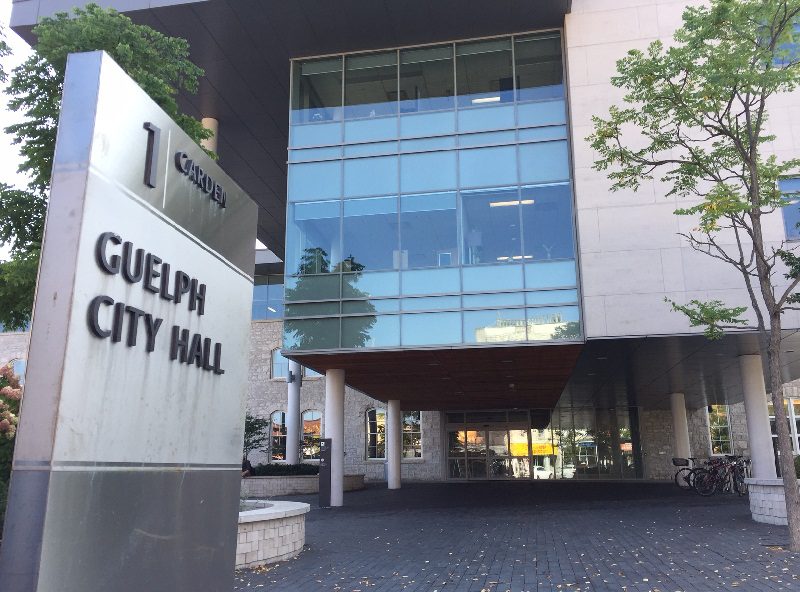City council in Guelph, Ont., has reaffirmed the 2023 budget.

After a day full of deliberations and delegations at city hall, council passed the budget on Wednesday by a vote of 11-2.
The 2023 portion of the multi-year budget that passed in 2021 sees a rate increase of 4.46 per cent, down from the originally approved rate of 5.17 per cent.
That means an average home assessed at $406,000 will pay $4,371 in property taxes in 2023, an increase of $187 from 2022 or $16 per month.
Mayor Cam Guthrie said the number fluctuated throughout the meeting going as high as 5.2 per cent at one point before settling on 4.46 per cent.
“People wanted to add some important services that they felt the community needed,” said Guthrie. “There were some people who wanted to see some reductions as well. A majority of council had a mix of both, they wanted to see some increase in service levels but at the same time make the rate overall a little bit less.”
There were a number of things approved in the budget targeting those who take transit.
“One would be kids 12 and under ride free for this year,” said Guthrie. “There is the affordable bus pass for those who are in most need. They are going to be able to afford transportation a lot better across the city.”
Guthrie said funding is also going to areas of economic development and the downtown core.
Budget items that got the green light include:
- An acceleration of the expansion of resources for Guelph-Wellington Paramedic Services originally planned for 2025 to maintain service levels and response times as increased call volumes cannot be sustained
- A reduction of $1.4 million in funding for infrastructure renewal to help reduce the overall tax burden during a time of economic uncertainty
- A continued investment of $500,000 in affordable housing
- An investment of $1.6 million to begin addressing the impacts of Bill 23, of which $1.1 million is funded through reserves
- Funding of $150,000 to conduct a formal review of the gaps that exist related to homelessness, addictions and the mental health crisis within the Guelph community, alongside monitoring and reporting back on continued housing legislation changes imposed on the city
- The addition of $202,500 to the base budget for the Welcoming Streets initiative
- Approval of the Affordable Bus Pass Sliding Scale subsidy for 2023 at a cost of $558,000 and its addition to the base budget for 2024 at a rate of $458,000
- Funding to continue the Kids Ride Free pilot program until further decisions are made as part of the Transit Fare Strategy this spring
- Operational funding of $300,000 for the Economic Development and Tourism strategy to support business service agencies like, but not limited to, Innovation Guelph and the Guelph Wellington Business Centre
- A slow-down of the phase-in for the South End Community Centre and Baker District Redevelopment operating impacts
This is the first time that the City of Guelph has used a multi-year budget and it appears it has worked the way city staff and council envisioned.
“Even the best-laid plans can change, and it’s no different for budgets,” said Shanna O’Dwyer, the city’s acting treasurer and finance general manager. “The budget confirmation process completed in each subsequent year of an approved multi-year budget is necessary to ensure our planned budget spends are reflective of the current environment in which we’re operating and serving the community.”
“Many cities that are growing and maturing have moved towards multi-year budgeting,” Guthrie said. “In fact, one of the reasons why Guelph got the bump to a AAA credit rating was the move to multi-year budgeting.”





Comments